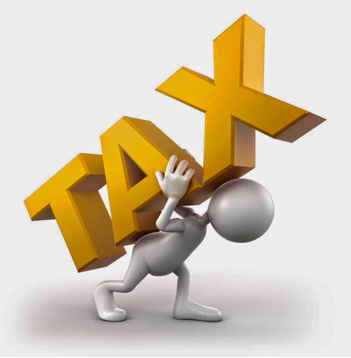2022 changes that may affect your tax refund [税金]
Changes in the number of dependents, employment or self-employment income and divorce, among other factors, may affect your tax-filing status and refund for 2023.

No additional stimulus payments. Unlike 2020 and 2021, there were no new stimulus payments for 2022 so taxpayers should not expect to get an additional payment in their 2023 tax refund.
Some tax credits return to 2019 levels. Several tax credits, including the Child Tax Credit (CTC), the Earned Income Tax Credit (EITC) and the Dependent Care Credit will revert to pre-COVID levels. This means that taxpayers will likely receive a significantly smaller refund compared with the previous tax year. For a comparison, those who got $3,600 per dependent in 2021 for the CTC will get $2,000 for the 2022 tax year. Similarly, eligible taxpayers with no children who received roughly $1,500 in 2021 will now get $500 in 2022. And the Dependent Care Credit returns to a maximum of $2,100 in 2022 instead of $8,000 in 2021. Visit Credits and Deductions for more details.
No above-the-line charitable deductions. During COVID, taxpayers were able to take up to a $600 charitable donation tax deduction on their tax returns. However, in 2022, this deduction will return to pre-COVID rules, which will not allow those who take a standard deduction to make an above-the-line deduction for charitable donations.
More people may be eligible for the Premium Tax Credit. For tax year 2022, taxpayers may qualify for temporarily expanded eligibility for the premium tax credit. Remember that simply meeting the income requirements does not mean you're eligible for the premium tax credit. You must also meet the other eligibility criteria.
The Inflation Reduction Act of 2022 changes the eligibility rules to claim a tax credit for clean vehicles. More details about clean vehicles will be available in coming months.
(Source of quote)
2022 changes that may affect your tax refund

No additional stimulus payments. Unlike 2020 and 2021, there were no new stimulus payments for 2022 so taxpayers should not expect to get an additional payment in their 2023 tax refund.
Some tax credits return to 2019 levels. Several tax credits, including the Child Tax Credit (CTC), the Earned Income Tax Credit (EITC) and the Dependent Care Credit will revert to pre-COVID levels. This means that taxpayers will likely receive a significantly smaller refund compared with the previous tax year. For a comparison, those who got $3,600 per dependent in 2021 for the CTC will get $2,000 for the 2022 tax year. Similarly, eligible taxpayers with no children who received roughly $1,500 in 2021 will now get $500 in 2022. And the Dependent Care Credit returns to a maximum of $2,100 in 2022 instead of $8,000 in 2021. Visit Credits and Deductions for more details.
No above-the-line charitable deductions. During COVID, taxpayers were able to take up to a $600 charitable donation tax deduction on their tax returns. However, in 2022, this deduction will return to pre-COVID rules, which will not allow those who take a standard deduction to make an above-the-line deduction for charitable donations.
More people may be eligible for the Premium Tax Credit. For tax year 2022, taxpayers may qualify for temporarily expanded eligibility for the premium tax credit. Remember that simply meeting the income requirements does not mean you're eligible for the premium tax credit. You must also meet the other eligibility criteria.
The Inflation Reduction Act of 2022 changes the eligibility rules to claim a tax credit for clean vehicles. More details about clean vehicles will be available in coming months.
(Source of quote)
2022 changes that may affect your tax refund


